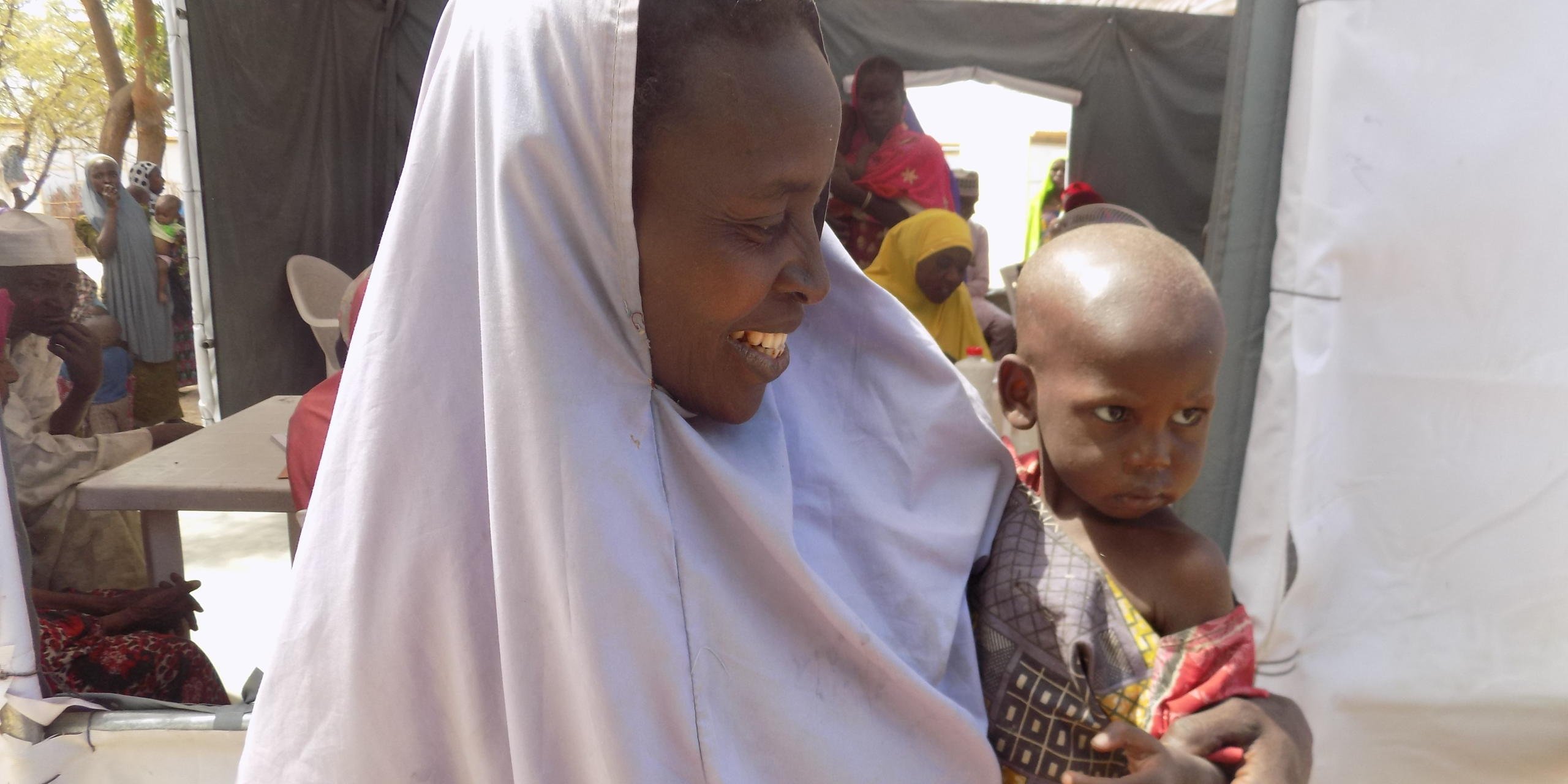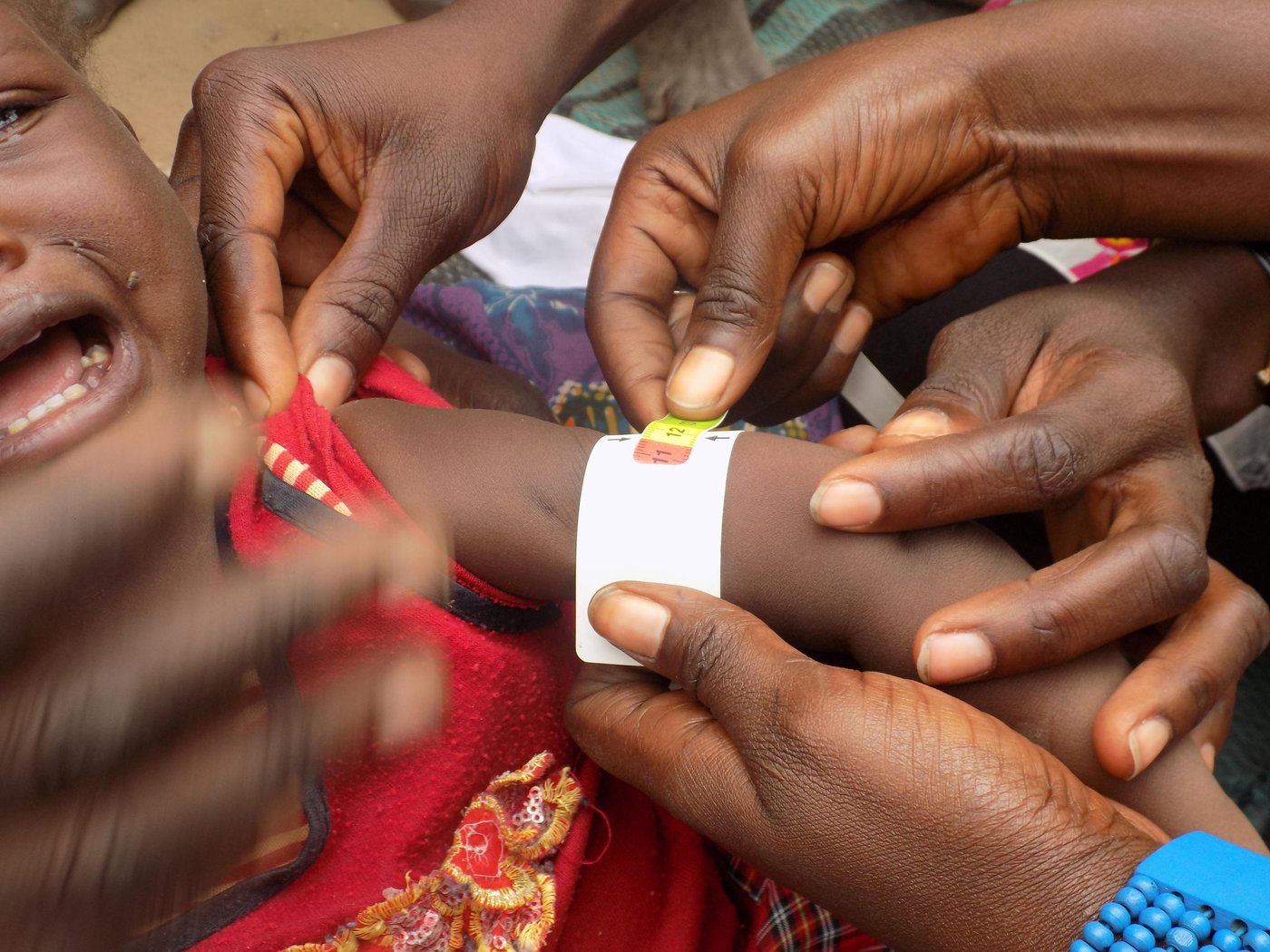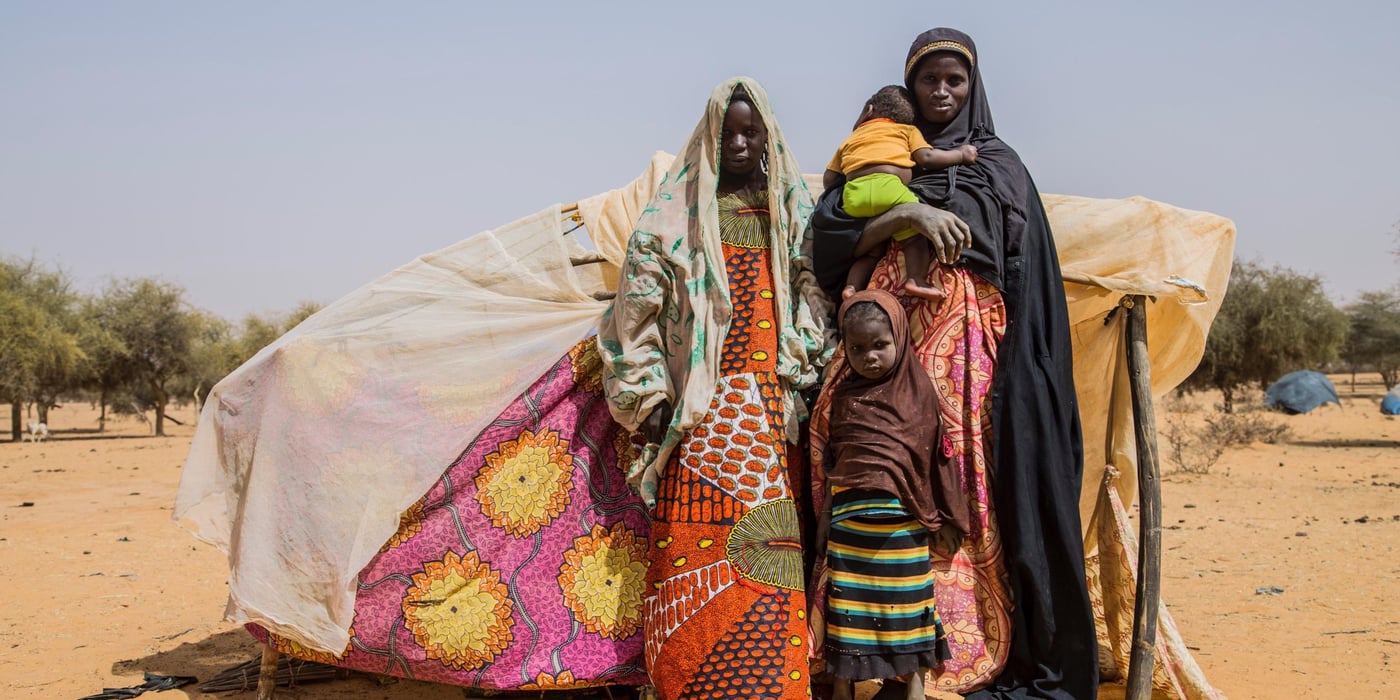
“Sometimes there is no food,” says Kaltima.
The mother of eight is waiting at a screening centre for children suffering from malnutrition. She has been referred to the centre by the Norwegian Refugee Council’s (NRC) staff working in Shuwari, an informal settlement in Maiduguri, northeast Nigeria.
In Shuwari, NRC’s hygiene promoters conduct malnutrition screening tests for all families with children under the age of five. NRC’s employees are working to improve the population’s understanding of good hygiene practices, and the malnutrition screening is part of their job.
According to UNOCHA, the conflict in northeast Nigeria has since 2009 resulted in widespread displacement and a growing humanitarian crisis. In addition, climate change and drought contribute to eroding livelihoods for farmers in this part of the country, where an estimated 15 millione people are in need of humanitarian assistance.
Sometimes, there is no food.Kaltima, internally displaced Nigerian and mother of eight
One meal a day
Kaltima’s two-year-old son has been registered at the centre. At 7,5 kilos, he was found to be at risk of severe acute malnutrition.
They live on only one meal a day, Kaltima explains.
The food security situation is desperate, as are needs for clean water, sanitation services and shelter. Millions of Nigerians are relying on assistance to meet their most basic needs.

Escaped Boko Haram
Kaltima’s husband was killed while they were fleeing the violence caused by Boko Haram in Mafa town in Borno state. Although relieved she is now in safety, Kaltima finds it difficult to get by, as there are few opportunities to find work.
“Sometimes there is no food. We only have the water,” says Kaltima, referring to the borehole where hundreds of families collect water every day.
NRC established the borehole last year, providing the only safe source of drinking water to the families living in Shuwari. In a region where an estimated 75 per cent of the water, sanitation and hygiene infrastructure has been destroyed during the crisis, the provision of safe drinking water and hygiene and sanitation services is a lifeline for its population.
To reduce the chances of illnesses and infections, NRC will provide Kaltima with soap, laundry detergent and a bucket. As soon as funding is confirmed, her family will also receive shelter and food assistance.




